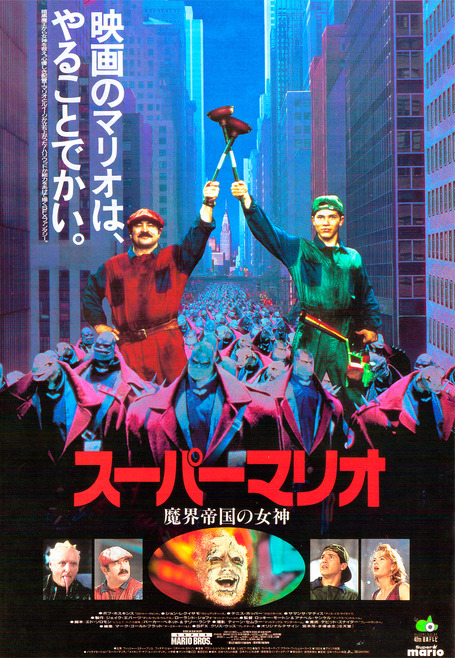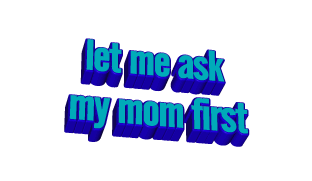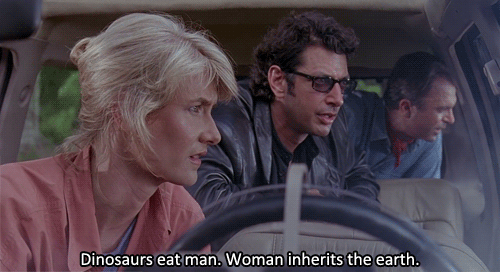Lanas-own-blog - My Personal Space.

More Posts from Lanas-own-blog and Others

The NASA “Worm” Logo
Just like many organizations, the style and logos can change over time. You are probably most familiar with our “meatball” logo. No, unfortunately this does not refer to the delicious food. This logo (below) is our most popular symbol, and dates back to 1959.

But, we’ve also had other insignia that represented our organization throughout the years.
The “worm” logo (below) was used by the agency from 1975 until 1992. The organization wanted to create a more “modern” logo, which resulted in the unique type style of the “worm” logo.

Even though this logo was retired in 1992, the Graphics Standards Manual is still available online HERE.
You can also read up about the emblems, logos and insignia used by NASA throughout the years in a new e-Book available for free HERE.
Make sure to follow us on Tumblr for your regular dose of space:http://nasa.tumblr.com


“I probably cried more for this story than any other stories I’ve done,“ says the photographer. “There were some film producers and editors that I wanted to work with. I showed them [my] footage and they were like, ‘Oh, this is unusable. There’s so much shaking and sobbing in background.’ That was just me. It was a very emotional experience.”

NGC 5189.
Credit: NASA, ESA and The Hubble Heritage Team (STScI/AURA)










How to stabilize a wobbly table?
You are in a restaurant and you find that your table wobbles. What do you do? Most people either put up with it, or they attempt to correct the problem by pushing a folded table napkin under one of the legs. But mathematicians can go one better. A couple of years ago, four mathematicians published a research paper in which they proved that if you rotate the table about its center, you will always find an orientation where the table is perfectly stable.
This problem - as a math problem - has been around since the 1960s, when a British mathematician called Roger Fenn first formulated it. In 1973, the famous math columnist Martin Gardner wrote about the problem in his Scientific American column, presenting a short, clever, intuitive argument to show how rotation will always stop the wobble. Here is that argument.
This only works for a table with equal legs, where the wobble is caused by an uneven floor. However uneven the floor, a table will always rest on at least three legs, even if one leg is in the air. Suppose the four corners are labeled A, B, C, D going clockwise round the table, and that leg A is in the air. If the floor were made of, say, sand, and you were to push down on legs A and B, leaving C and D fixed, then you could bring A into contact with the floor, but leg B would now extend into the sand. Okay so far?
Here comes the clever part. Since all four legs are equal, instead of pushing down on one side of the table, you could rotate the table clockwise through 90 degrees, keeping legs B, C and D flat on the ground, so that it ends up in the same position as when you pushed it down, except it would now be leg A that is pushed into the sand and legs B, C, and D are all resting on the floor. Since leg A begins in the air and ends up beneath the surface, while legs B, C, and D remain flat on the floor, at some point in the rotation leg A must have first come into contact with the ground. When it does, you have eliminated the wobble.The result follows from the Intermediate Value Theorem (Proof).
For more - VIDEO: Fix a Wobbly Table (with Math) by Numberphile.
Consider an interval I = [a, b] in the real numbers ℝ and a continuous function f : I → ℝ. Then, Version I. if u is a number between f(a) and f(b), f(a) < u < f(b) (or f(a) > u > f(b) ), then there is a c ∈ (a, b) such that f(c) = u.

This argument seems convincing, but making it mathematically precise turned out to be fairly hard. In fact, it took over 30 years to figure it out. The solution, presented in the paper Mathematical Table Turning Revisited, by Bill Baritompa, Rainer Loewen, Burkard Polster, and Marty Ross, is available online at Mathematical table turning revisited 19, Nov 2005, http://Arxiv.org/abs/math/0511490
The result follows from the Intermediate Value Theorem. But getting it to work proved much harder than some other equally cute, real-world applications of the IVT, such as the fact that at any moment in time, there is always at least one location on the earth’s surface where the temperature is exactly the same as at the location diametrically opposite on the other side of the globe. As the authors of the 2005 solution paper observe, “for arbitrary continuous ground functions, it appears just about impossible to turn [the] intuitive argument into a rigorous proof. In particular, it seems very difficult to suitably model the rotating action, so that the vertical distance of the hovering vertices depends continuously upon the rotation angle, and such that we can always be sure to finish in the end position.” The new proof works provided the ground never tilts more than 35 degrees. (If it did, your wine glass would probably fall over and the pasta would slide off your plate, so in practice this is not much of a limitation.) Is the theorem any use? Or is it one of those cases where the result might be unimportant but the math used to solve it has other, important applications?…… “I have to say that, other than the importance of the IVT itself, I can’t see any application other than fixing wobbly tables. Though I guess it does demonstrate that mathematicians do know their tables”- Mathematician Keith Devlin.
[SOURCE - MAA.org, K. Devlin, Feb. 2007]
[PDF] On the stability of four legged tables, A. Martin, 15 Aug. 2006: Proving that a perfect square table with four legs , place on continuous irregular ground with a local slope of at most 14.4 degrees and later 35 degrees, can be put into equilibrium on the ground by a “rotation” of less than 90 degrees. And Discussing the case of non-square tables and make the conjecture that equilibrium can be found if the four feet lie on a circle.
Also, I think we can add an actual argument: “The table would be stability (not wobble) if their four legs contact the ground - not necessarily that they have lie on the same flat surface ”, then everything will be easier to approach the problem that the authors wrote.




-
 avianalika liked this · 2 months ago
avianalika liked this · 2 months ago -
 dark-cyberpunk-gothic-dystopia reblogged this · 3 months ago
dark-cyberpunk-gothic-dystopia reblogged this · 3 months ago -
 dark-cyberpunk-gothic-dystopia liked this · 3 months ago
dark-cyberpunk-gothic-dystopia liked this · 3 months ago -
 shimacapsule liked this · 3 months ago
shimacapsule liked this · 3 months ago -
 bazookadeathmatch reblogged this · 3 months ago
bazookadeathmatch reblogged this · 3 months ago -
 a-dream-seeking-light reblogged this · 3 months ago
a-dream-seeking-light reblogged this · 3 months ago -
 a-dream-seeking-light liked this · 3 months ago
a-dream-seeking-light liked this · 3 months ago -
 taxi-davis reblogged this · 3 months ago
taxi-davis reblogged this · 3 months ago -
 taxi-davis liked this · 3 months ago
taxi-davis liked this · 3 months ago -
 justinamaxina reblogged this · 3 months ago
justinamaxina reblogged this · 3 months ago -
 justinamaxina liked this · 3 months ago
justinamaxina liked this · 3 months ago -
 itaiko liked this · 10 months ago
itaiko liked this · 10 months ago -
 lazydoesvoices liked this · 11 months ago
lazydoesvoices liked this · 11 months ago -
 ivebeentotheforest liked this · 1 year ago
ivebeentotheforest liked this · 1 year ago -
 ethereal-call liked this · 1 year ago
ethereal-call liked this · 1 year ago -
 tatooinetourismboard reblogged this · 2 years ago
tatooinetourismboard reblogged this · 2 years ago -
 saigol reblogged this · 2 years ago
saigol reblogged this · 2 years ago -
 reblogagainandagain liked this · 2 years ago
reblogagainandagain liked this · 2 years ago -
 ydnas-shack liked this · 2 years ago
ydnas-shack liked this · 2 years ago -
 lowearthorbit1 reblogged this · 2 years ago
lowearthorbit1 reblogged this · 2 years ago -
 satyronmars liked this · 2 years ago
satyronmars liked this · 2 years ago -
 sssslimysswampghostttt reblogged this · 3 years ago
sssslimysswampghostttt reblogged this · 3 years ago -
 lowearthorbit1 reblogged this · 3 years ago
lowearthorbit1 reblogged this · 3 years ago -
 koliroze-lord-esquire reblogged this · 3 years ago
koliroze-lord-esquire reblogged this · 3 years ago -
 lalinskyworld reblogged this · 3 years ago
lalinskyworld reblogged this · 3 years ago -
 lalinskyworld liked this · 3 years ago
lalinskyworld liked this · 3 years ago -
 ddecomposedd reblogged this · 3 years ago
ddecomposedd reblogged this · 3 years ago -
 90s-2000s-barbie liked this · 3 years ago
90s-2000s-barbie liked this · 3 years ago -
 keepyourdemonsin liked this · 3 years ago
keepyourdemonsin liked this · 3 years ago -
 abs0luteb4stard reblogged this · 4 years ago
abs0luteb4stard reblogged this · 4 years ago -
 step-on-me-handong reblogged this · 4 years ago
step-on-me-handong reblogged this · 4 years ago -
 step-on-me-handong liked this · 4 years ago
step-on-me-handong liked this · 4 years ago -
 silverfang797 reblogged this · 4 years ago
silverfang797 reblogged this · 4 years ago -
 cazabichos liked this · 4 years ago
cazabichos liked this · 4 years ago -
 attaboyike liked this · 4 years ago
attaboyike liked this · 4 years ago
I've had lots of blogs in the past, but this one I'm actualy excited to share with people.
68 posts


